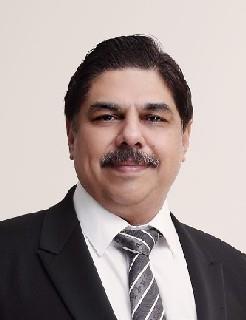| |
 Dr. Hrishikesh Pai,Gynaecologist & Infertility specialistA-791, Bandra Reclamation, Bandra (W)Mumbai - 400050 Many people in Mumbai opt for IVF treatment. Through the guidance of their IVF
specialist in Mumbai, most couples achieve the gift of becoming parents.
Parenthood is a beautiful experience, and the challenges that a couple must go
through do not matter to them.
Therefore, IVF procedure or IVF treatment is becoming a boon for couples who
cannot conceive. Still, in a few cases, there are consistent IVF failures. We
have listed the causes of repeated IVF failures and how you can approach the
next steps.
Common causes of repeated IVF failures
Here are some of the common causes of an IVF failure:
Uterine abnormalities: Previously diagnosed uterine
fibroid/endometrial polyps/septum and so on, can cause implantation failures.
Poor endometrium: Poor quality endometrium, i.e., thin
endometrium, is not suitable for implantation.
Embryo quality: Poor quality embryos or chromosomally abnormal
embryos will find difficulty in implantation. Even if they can implant, they may
not remain for a long time. When an embryonic layer present around the oocyte
known as the zona is thicker than usual, it contributes to implantation
failures. It is because the sperms fail to break the zona during fertilization.
Genetic abnormalities in the gametes: Any defect, including the
minor ones like chromosomal microdeletions, can compromise the gamete’s quality
and hence embryo.
Autoimmune diseases: If you face some autoimmune diseases, you
may be at risk of recurrent IVF failures. Usually, screening is performed with
repeated pregnancy losses to rule out autoimmune disease.
Other diseases in the mother: Uncontrolled diabetes, thyroid
disorders, etc., are conditions that may avoid pregnancy.
Difficulty in embryo transfer: One common reason for failed IVF
procedure failure is embryo transfer. Issues at embryo transfer or blood seen at
catheter tips suggest a high risk of failure.
Suboptimal stimulation of the ovaries: This can also raise your
risk of repeat IVF procedure failure because of the female partner’s inability
to produce eggs for fertilization.
Treatment options after a single/ multiple failed IVF
First IVF cycle failed? The unfortunate news of failed IVF might dishearten
you. However, it is not the end of hope. The last resort is not IVF; there are
treatments that you can go for considering the treatment’s responsiveness. There
are several fertility procedures, including:
Intracytoplasmic Sperm Injection (ICSI): This treatment adds to
the success of a basic IVF procedure. Your specialist may perform it after IVF
failed once or many times. In this procedure, a single sperm is chosen under a
high-definition microscope.
It ensures proper shape and genetic makeup make it appropriate for
fertilization. Then it is injected into the egg to form a healthy embryo, which
is of high quality resulting in an improved IVF success rate.
PGD: Preimplantation Genetic Diagnosis or PGD is a screening
test done on the embryos in an IVF procedure. It helps identify any genetic
disorder that anyone or both the parents may have. Your specialist may carry out
the tests on embryos before transferring to the uterus for a successful
pregnancy and delivery.
Failed IVF cycle; when to start again?
There is no time to begin another cycle of IVF after the failure of the first
cycle. However, it is best to wait until your specialist can determine the cause
of previous IVF failure.
We understand that an IVF failure is a huge loss for you. We recommend that you
opt for the second attempt only if you are ready emotionally and physically. You
can take time if you want to improve your health and change your lifestyle.
How can you prevent repeated IVF failures?
Here are some things you can do to prevent future IVF failures:
• The first thing that you need to go for is a thorough examination involving
ultrasound and blood tests. The latter two helps explicitly in determining the
ovarian reserve.
• After that, you can go for a laparoscopic hysteroscopy test to look for and
deal with any physical obstacles in conception
• Your specialist freshens the poor-quality endometrium; also, you would have to
send a sample to rule out tuberculosis.
• Hydrosalpinges can be clipped during this time to avoid the embryotoxic fluid
from causing IVF failures.
• Following all this, your specialist will choose and start the right ovarian
stimulation
• Your specialist will make sure that your endometrium is fit for implantation
in thickness and quality.
If you have continuous IVF failure, do not worry. There are numerous
treatments like ICSI and IUI that can help boost your IVF treatment procedure.
Make sure that you are getting your IVF treatment from an experienced IVF centre
in Mumbai. The experience of an IVF clinic affects the results of the treatment.
|


